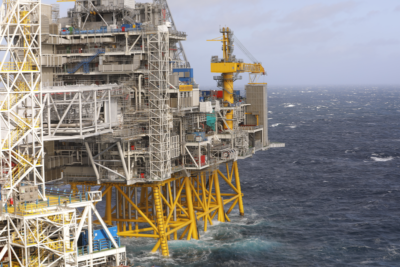Norwegian analysts, economists, state officials and not least business leaders were bracing for the worst after oil prices collapsed over the weekend. With the price of a barrel of Norway’s North Sea crude oil down nearly 30 percent during the night, the country woke up to an even weaker currency and fears of heavy stock market losses.

The Oslo Stock Exchange (OSE) index was down 2.8 percent at the open, but then quickly fell by 9.95 percent. Investor Jan Petter Sissener predicted that the OSE could fall by 10-12 percent, on top of losses tied to the Corona virus in recent weeks.
“I can’t see where this is going to end,” Sissener, who’s had a long career in the stock market, told newspaper Dagens Næringsliv (DN). His advice: “Batten down the hatches and be sure that you tolerate risk.”
Moments later the OSE recovered slightly, down “just” 7.6 percent as the rollercoaster ride continued. Among shares most heavily traded and losing big Monday morning were, predictably enough, state oil company Equinor (down 17.42 percent by 10am) and privately held Norwegian oil company Aker BP (down 22.5 percent). Norway’s biggest bank DNB was also hammered, down nearly 16 percent.
Oil was selling at just under USD 34 a barrel, down from USD 52 last week and more than USD 60 in recent months. Much of the decline is pegged to the Corona virus that’s slowing down economies all over the world and reducing demand for oil. With airlines slashing flights, conferences cancelled and even sports fans told to stay away from major events, travel and tourism is taking a dive while many workers are housebound in Corona quarantine.
OPEC effect
The weekend’s collapse, however, was mostly a result of OPEC and Russia failing to agree on oil production levels. Norway is not a member of OPEC but remains directly affected by its production and pricing. With OPEC major Saudi Arabia launching a price war, boosting production and offering delivery rebates, Norway’s offshore oil price was hit hard quickly.
That in turn hit Norway’s currency, the krone, because the country remains so dependent on its dominant oil industry. While oil companies like Norway’s state-controlled Equinor can still break even on large oil fields like the new Johan Sverdrup, oil prices below USD 40 can spook other companies with higher offshore production costs, and discourage more oil exploration. That in turn can strangle Norway’s important oil service sector as well.
“Now it’s full chaos in the market,” Joachim Bernhardsen, an analyst for Nordea Markets, told Norwegian Broadcasting (NRK) even before the Oslo Stock Exchange opened for trading on Monday. “Almost everyone had thought OPEC would hold the oil price up, but when they didn’t do that, the oil market has collapsed.”
‘Bloody red day’ but ‘no crisis’ yet
He and his colleagues predicted a “bloody red day” for Norwegian shares, since so many are linked to the oil industry. “The air has gone out of the oil balloon,” Bernhardsen said. “The markets are moving extremely quickly right now, and this will be a chaotic day.”
Most analysts and economists had expected the Oslo Stock Exchange and other European markets to follow those in Asia with a plunge as trading opens. Japan’s Nikkei 225 index was down 5.88 percent, the Hang Seng index in Hong Kong was off 3.5 percent and Australia’s ASX was down 7.33 percent on Monday.
Bernhardsen stressed that there’s no “crisis” in Norway yet, but if the oil price remains in the USD 30s per barrel, oil sector activity will decline as it did after prices fell in 2014. Norway’s economy has nonetheless remained strong and recovered fairly quickly from the oil price dive six years ago.
Only those concerned about climate change and the environment were likely to enjoy the situation, given the prospects for reduced oil exploration and production. Calls were also likely to increase for ongoing diversification of Norway’s oil-fueled economy.
newsinenglish.no/Nina Berglund

